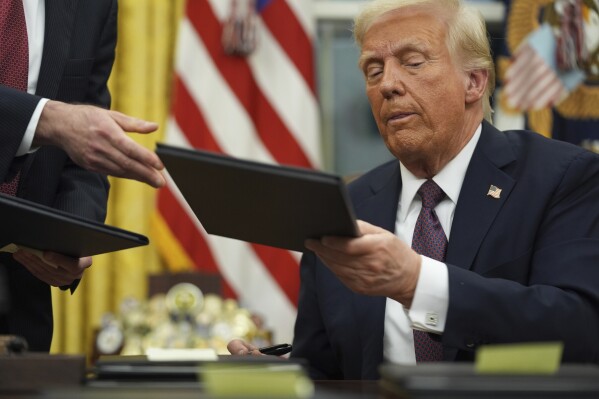America Under Trump Again: Immigration, Civil Rights, and What’s Next
In his first weeks back in office, President Donald Trump has implemented executive orders and policies on immigration and civil rights, setting off legal battles and public outrage. His administration has put a focus on restricting birthright citizenship, intensifying deportations, and rolling back anti-discrimination protections.
Immigration Crackdown Intensifies
On January 29, the administration ordered the first deportation flights to Guantanamo Bay, Cuba, marking a big shift in immigration. This comes as Trump has promised to expand deportation and crack down on undocumented immigrants.
“We are taking bold action to secure our border and protect American communities,” included in a White House briefing titled President Trump’s America First Priorities.
The administration also announced plans to end birthright citizenship, a right protected under the 14th Amendment. The executive order, signed Jan. 25, argues that automatic citizenship for children of noncitizens is a loophole that must be closed. Legal experts have challenged the order, stating it is unlikely to survive in court.
Read about the block on the birthright executive order
Within hours of President Trump’s executive order on birthright citizenship, 22 states filed lawsuits against the order. This legal pushback shows just how controversial these changes are and how much fight there is over the future of immigration policy in America.
Rollback of Civil Rights Protections
Trump’s administration also moved to cancel an order that required federal contractors to follow non-discrimination rules. These rules, put in place by the Civil Rights Act of 1964, were designed to prevent discrimination in hiring based on race, religion, sex, or sexual orientation. The White House said the change was to get rid of what it called “radical DEI preferencing.”
Part of the executive order states, “I further order all agencies to enforce our longstanding civil-rights laws and to combat illegal private-sector DEI preferences, mandates, policies, programs, and activities.”
Critics argue that the change would remove protections against discrimination based on race, religion, sex, and sexual orientation for government contractors. This has led to concerns about hiring practices.
Student Perspective: ‘They Are Rewriting History’
Jasmine Mention, a senior at FAMU, said the administration’s policies are a reminder of why understanding history is critical.
“This is who the people voted for. Am I surprised? No. That’s why attending HBCUs and learning about your history is important. Reading, collecting as much knowledge as you can because they are continuing to rewrite history before our eyes.”
She also spoke about how Trump’s immigration policies are affecting her family.
“Students and families are being broken apart. I have family from Cuba, in Cuba, already preparing for the wrath of the orange man. It’s not only impacting us but our families back home.”
Sidebar: Concerns are rising as deportation flights increase. Many affected individuals are uncertain about their future legal status.
Comparison with Previous Policies
Trump’s immigration policies aren’t entirely new. They build on ideas that have been around for years but have now been taken to an extreme. Former President Barack Obama also focused on immigration but in a very different way. His administration introduced DACA (Deferred Action for Childhood Arrivals), which protected young immigrants who were brought to the U.S. as children. Trump’s administration, on the other hand, ended DACA during his first term and expanded deportations.
While both administrations prioritized securing the border, Trump’s policies are severe and focus on ending protections for immigrants that have been in place for years. Trying to end birthright citizenship and cracking down on immigration are part of a big effort to reshape the country’s approach to immigration.
What’s Next?
Trump’s policies have prompted protests nationwide. While Trump’s supporters argue that the policies are for the good of this country, opponents believe they pose constitutional threats.
As lawsuits progress, courts will determine whether Trump’s executive orders stand or will face blocks. For now, the administration is moving full speed ahead.















